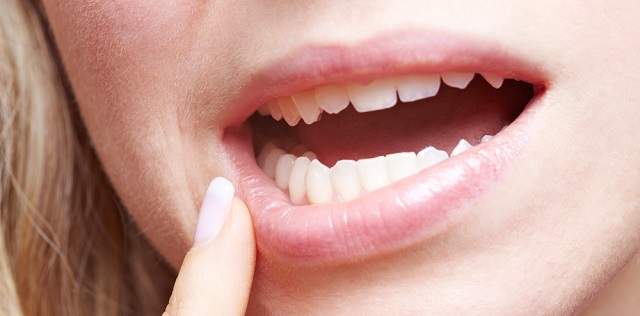Hypersensitivity to dentin has an incidence on the population between 8% and 35% with a greater prevalence among women.
The symptomatology of a hypersensitivity to dentin consists of acute pain in the tooth as a response to a thermal, tactile or chemical stimulus.
Origin of hypersensitivity to dentin
At the origin of hypersensitivity to dentin there could be various pathologies. Among the ascertained causes:
Gum recession is a major cause and can occur both in patients with poor oral hygiene and in patients with high oral hygiene. Too vigorous tooth brushing, done several times a day, can damage the gums.

The abrasion of the enamel, on the other hand, can have various origins, not only linked to pathologies of the oral cavity. Abrasion can occur due to bruxism, but it can also be the consequence of gastric problems, unbalanced nutrition. Enamel erosion due to high pH acidity can cause hypersensitivity to dentin.
New Research on Hypersensitivity of the Teeth
Recent research published in the Journal of Dentistry of the University of Shiraz pointed out that the pain caused by hypersensitivity to dentin is a consequence of a movement of the dentinal fluid. The movement of the fluid is in turn caused by external stimuli such as heat or cold, tactile contact, contact with particular substances. The fluid stimulates the mechanoreceptors and triggers pain. This process is called hydrodynamic theory.
In cases of hypersensitivity to dentin, brushing the teeth immediately after eating may cause more acute pain.

In cases of severe abrasion of the enamel, intervening with a dental treatment with tooth encapsulation or application of dental veneers could partially solve the problem.
In other clinical cases, occlusion of the dentinal tubules is used to make the dentin insensitive to external stimuli. The occlusion is carried out through sealants such as composites or glass ionomer cements, but these solutions are often temporary in nature because they are not very resistant to wear. They can be easily removed even with frequent oral hygiene.
Desensitizing dentin effective remedies
One of the most effective treatments for dentin hypersensitivity is the use of potassium salts. The active ingredient of potassium salts reduces nervous excitement and pain. Potassium ions block synapses between nerve cells and thus block the source of pain.
Hypersensitivity to dentin: how to proceed
The perception of acute pain during meals or as a reaction to thermal or tactile stimuli is the first alarm bell. The first thing to do is to contact your dentist for a specific evaluation of the clinical case. Only after an accurate diagnosis is it possible to proceed with the best possible treatment for the specific clinical case.
















